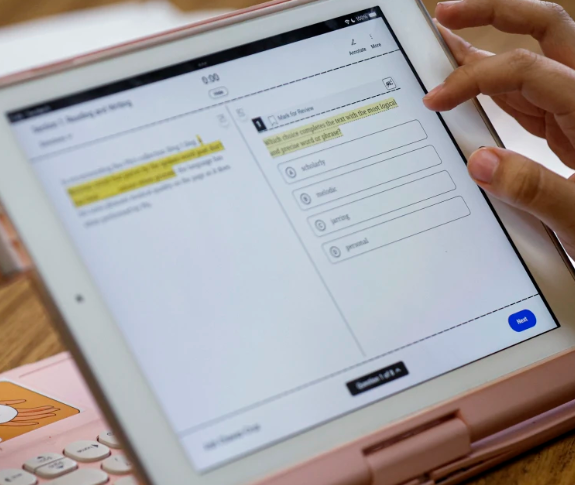Students Reveal Block Scheduling Eases Stress
February 25, 2020
As we enter the second half of the school year, a Wayne Schools survey reports the many mixed feelings on the new blocked scheduling. With a total of 511 participants in the survey, many people express a want for a later start time and greater access to food and space during lunch, but say the new schedule has improved their ability to handle stress and their workload.
The results from the survey express a pattern of the student body’s want for a later start time. Many students argue that the extended blocks would allow their attention span to last longer as they would be getting more sleep.
“I think that school should start later. As we are sitting in the classroom for 18 minutes more, it is a struggle to stay focused and awake. The extra sleep that we can get from starting later can help improve test scores and overall grades,” expressed one of the most top-rated comments.
“Eating lunch at 10:30 A.M. leaves the students starving by the end of the day,” said one of the comments, expressing his/her opinion on the time of lunch.
There were also many mixed emotions about lab periods cutting into lunchtime with the argument that after lab, there is not enough time to eat, especially after waiting in long lines. “It is difficult to eat my lunch during the first half of lunch before lab, considering how long the lunch lines are,” conveyed another high rating comment.
Students who participated in the survey also suggested allowing juniors to leave during lunch periods to relieve the crowd in the chaotic lunchrooms. “There is no room for all the grades to eat lunch at the school,” claims a top-rated comment.
However, many students also praise the change and credit their more-controlled workload to the new schedule. “It is helpful because it gives us more time to do our work so that there wouldn’t be an excessive amount of assignments on one night which lessens the stress,” said another comment. The majority of respondents agree that even with the extended periods, only having six classes makes the days feel easier and shorter.
Even parents commented on the change: “I think it’s helpful. My daughter seems to be able to get her work done and her grades have improved.”
Teachers who participated in the survey have had many positive comments about block scheduling. The teachers now have more teaching time during class. Along with that, the teachers are also less stressed trying to plan out a full day of teaching since they have fewer classes in a day.
“It breaks up the monotony. The school year can be a long slog, and breaking up the same daily routine keeps things fresh for both students and teachers,” states a highly rated comment.
Overall, while block scheduling has many concerns, it still has demonstrated to have a positive effect on both teachers and students.

















